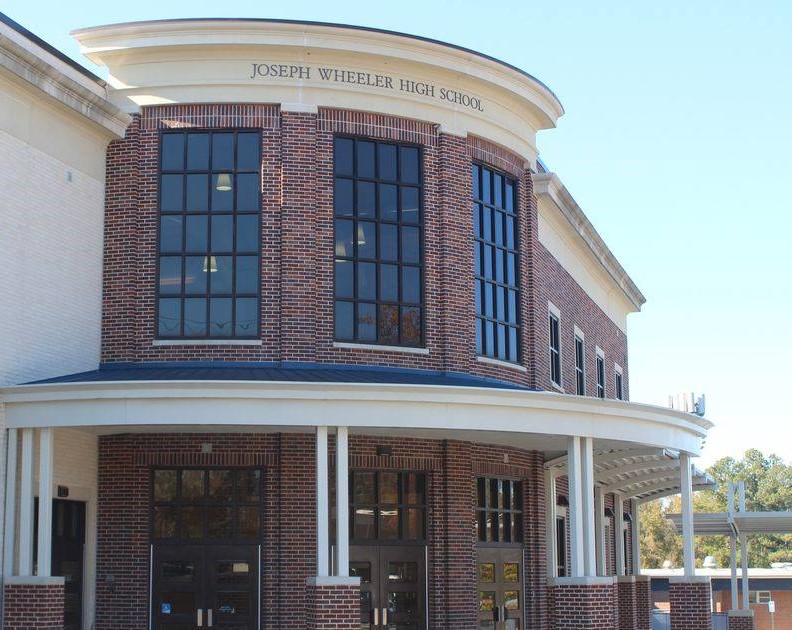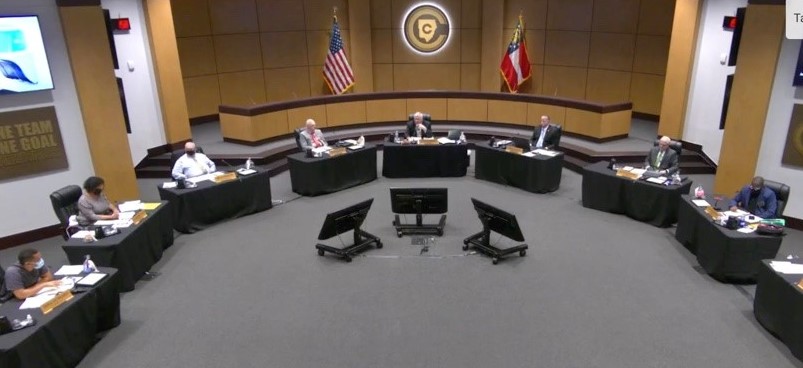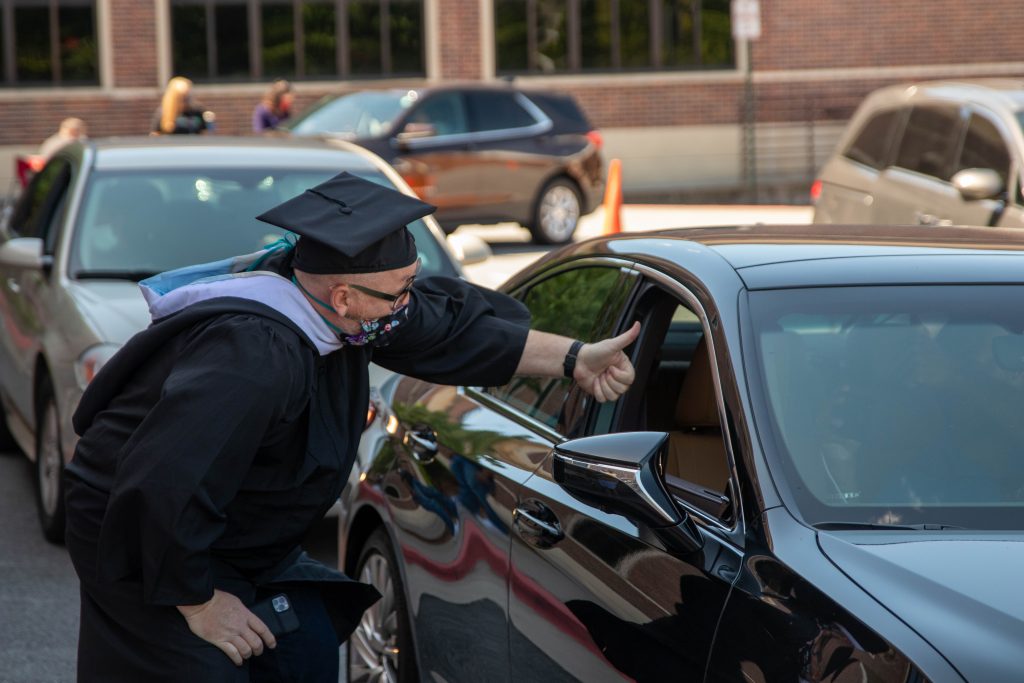Push To Rename Some Cobb Schools Causes Conflict Between Board Members

Joseph Wheeler Name Change
As Atlanta’s suburbs become more racially diverse, they’re starting to see more minority representation on some suburban school boards. But even though some boards may start to better resemble the student population, new tensions are also cropping up.
What’s In a Name?
In Cobb County, about 63% of the students are non-white. That diversity isn’t quite reflected on the school board, which has three African American members and four white ones. Now, the board is confronted with social justice issues it hasn’t had to grapple with before.
For example, thousands of community members have petitioned the school district to rename some schools that glorify white supremacists. One is Wheeler High School, named after Confederate General Joseph Wheeler.
“In the very beginning, we thought, ‘Oh, we just have to tell the board that this is a thing, and then they’ll just change it,’” said Caroline Hugh, a senior at Wheeler who is part of a group that wants the name changed. “And then very quickly, we realized that that was not the case.”
The group petitioned the board after last summer’s Black Livers Matter protests. At the time, the board had some interest in examining how all of the district’s buildings and facilities were named. At a meeting in August 2020, the board voted 4-3 to form a committee to study the issue.
Then-board chair Brad Wheeler (no relation to the high school) joined the three African Americans on board members in voting to form the committee.
But three months later, after the school board elections, Wheeler changed his mind. He said after talking to community members, he believed a committee was no longer needed.
“I’ve come to the conclusion…that as a board, we should not delegate our authority and decision-making to a committee,” Wheeler said. “As a result, I’m going to make a motion to dissolve the board committee that was created to examine the issue of renaming school buildings and facilities.”
The board voted 4-3 along racial lines to dissolve the committee. Wheeler, who had initially voted in favor of forming the body, now voted to do away with it.

Caroline Hugh was confused by Wheeler’s explanation.
“[Brad Wheeler] talked to people from all different posts all around the county, but he never reached out to us or we didn’t hear anything from him,” she said. “And we’ve been one of the most vocal groups. So that would have been a nice conversation to have.”
‘We…Have Examples To Follow’
Dissolving the committee also didn’t sit well with board member Jaha Howard, who is African American. Howard noted that the vote fell along racial lines.
“I guess maybe I’m trying to express how this is so…crazy that we’re doing this,” Howard said at a November board meeting. “We just voted to do it and we didn’t even complete the job, and we’re going to undo something that was half done. So, I just want to share this is what…this is a blatant example of systemic racism.”
Howard kept pressing, pointing out that most Wheeler High School students are people of color.
Brad Wheeler tried to move on to a policy discussion, but Howard wasn’t finished.
“You go to a school that’s named after a Confederate soldier and say, ‘Well, we’ll talk about it later,’” he said. “’ Maybe we’ll talk about it later.’”
The debate escalated, and other board members tried to step in to calm things down. The board took a five-minute break to regroup before resuming business matters.
In the very beginning, we thought, ‘Oh, we just have to tell the board that this is a thing, and then they’ll just change it.’ And then very quickly, we realized that that was not the case.”
—Caroline Hugh, Wheeler High School Senior
Since that November meeting, the board hasn’t taken any action on renaming schools. Zoe Shepard, a junior at Wheeler, has spoken at board meetings since then, urging the board to at least engage in conversation about renaming schools.
“At this point, we have 12 emails that have been ignored, meaning that they have produced no response by members of this board,” she said at a meeting in February. “Let it be clear that in the event that an issue becomes one-sided, it is a result of the actions of members of this board who choose to be silent and non-responsive.”

Zoe, who is African American, says the process of trying to get the board’s attention has been disheartening.
“More than the name itself, it’s having the idea that the people I go to school with, or my teachers or the staff feel that that would be okay,” she said. “And it’s just that I can’t trust the learning environment that I’m in and feel comfortable if I feel like people would agree with that ideology or what it represents.”
Caroline pointed to the fact that Atlanta Public Schools recently renamed several buildings named for white supremacists, most recently voting to rename Forrest Hill Academy (named for former Ku Klux Klan leader Nathan Bedford Forrest). It will soon honor the late baseball Hall of Famer and former Atlanta Brave Hank Aaron.
“[APS has] had a very public process where they’ve gotten input from thousands of community members and students, that kind of thing,” Caroline said. “So I feel like there are definitely ways to blend public input and board decision making. We do have examples to follow. It’s just disappointing that the conversation was stopped before even started.”
Zoe, Caroline, and the group of petitioners aren’t giving up. They say they’ll keep speaking out until the school board addresses the issue of renaming schools and other buildings that carry the names of white supremacists.








